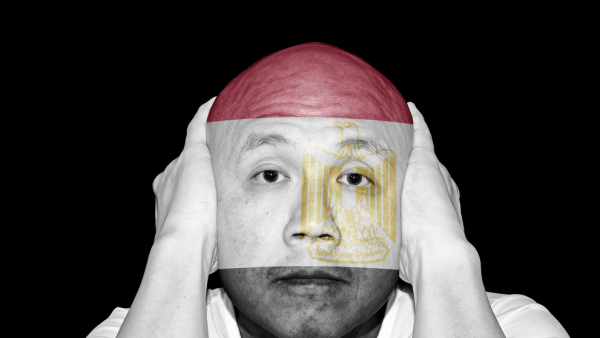- Egypt's government has blocked over 400 websites in 4 months under the guise of fighting terror
- The sites banned include start-ups, NGOs and news websites but not a single terror group appears on the list
- As terror attacks continue, many believe that the blockade is being used as a method to silence crtiics rather than fight terror.
When it first emerged that 21 news websites were unavailable to Egyptian internet users last May, state media reported that they had been blocked for “promoting terrorism”.
Four months on and genuine terrorists continue to operate with impunity despite the fact that the number of websites blocked is now over 400.
The list now includes start-ups, media organizations, rights groups and blogging platforms but not a single website affiliated with any internationally proscribed terror group.
In a further crackdown last month, the state also blocked over 200 websites containing VPN and proxy services, which allow internet users to protect their privacy online.
The targets for the blockade have been far reaching and yet the government has refused to confirm or deny that any such block is even taking place.
Sadly, the consequences are all too real for internet users and businesses who manage to upset the country’s powerful.
In July, authorities pulled the shutters on youth lifestyle website Al Scene after they shared a viral video reviewing the different types of Kek pastries available ahead of the Eid-al-Fitr holiday. Included in the review, was a light-hearted spiel about the supreme tastiness of the military’s own brand variety of the popular bakery treat.
While many countries may have laughed it off as a joke, it seems the spunky attitude of the well-heeled youngsters at the Cairo-based startup was too much for Egypt’s military rulers to bear and the website was blocked and shut down just hours later.
The country’s startup industry is also affected by the regime’s intermittent blocking of VOIP call services, including Skype and Signal, which many use to contact clients abroad.
Egypt has seen numerous terror attacks by ISIS-affiliated groups and scores of lives have been lost since the internet blockade began.
But this isn’t the only time when the blockade has appeared to be more about bruised egos than fighting actual terrorism.
The block has also targeted press freedom group RSF after it criticised the country’s ongoing crackdown on dissenting media voices. Meanwhile, last week saw the website of Human Rights Watch banned after the NGO released a report condemning the state’s policy of torture and abuse against detainees in police custody.
The widely circulated report left the country’s Foreign Ministry fuming and sure enough, the HRW was silenced just hours later.
Speaking about the blockade, HRW’s Deputy Middle East Director Joe Stork told Reuters: ”Rather than address the torture crisis in Egypt, the authorities have blocked access to a report that documents what many Egyptians and others living there already know.”
Other outspoken NGOs such as the Arabic Network for Human Rights Information and the Egyptian Committee of Rights and Freedoms have also fallen foul of the blockade.
News websites have also suffered badly under the blockade with well-known outlets including Huffington Post’s Arabic site and Al Jazeera banned from the eyes of the Egyptian public. Meanwhile, well respected independent news outlets such as Mada Masr and The Daily News Egypt have been reduced to posting articles on Facebook in a bid to reach their domestic audience after both sites were blocked for criticising the government.
The website of the latter remains blocked despite the fact that the government has seized control of the outlet under the unproven premise that it is somehow affiliated with the banned Muslim Brotherhood group.

Police oppression is common under President Abdel Fattah El Sisi (AFP)
Government officials have even blocked globally popular blogging platform Medium, which was previously used by some activists to document their everyday hardships under President Abdel Fattah El Sisi’s regime. The end result is that Egyptian internet users are now banned from viewing one of the most popular media platforms on the planet.
The constant threat of closure is seen by many as a way of sending a message to journalists who seek to hold the military regime accountable
“The climate in Egypt has become increasingly difficult for journalists in recent years and the internet block is just one more attempt by the government to silence freedom of expression,” one reporter told Al Bawaba News.
“They are using the law as a stick to beat any individual or organization who dares to speak out or criticise the actions of the corrupt military state in even the lightest hearted manner. We used to look with horror at censorship in China and North Korea but now we see it happening right here on our own doorstep,” he added.







